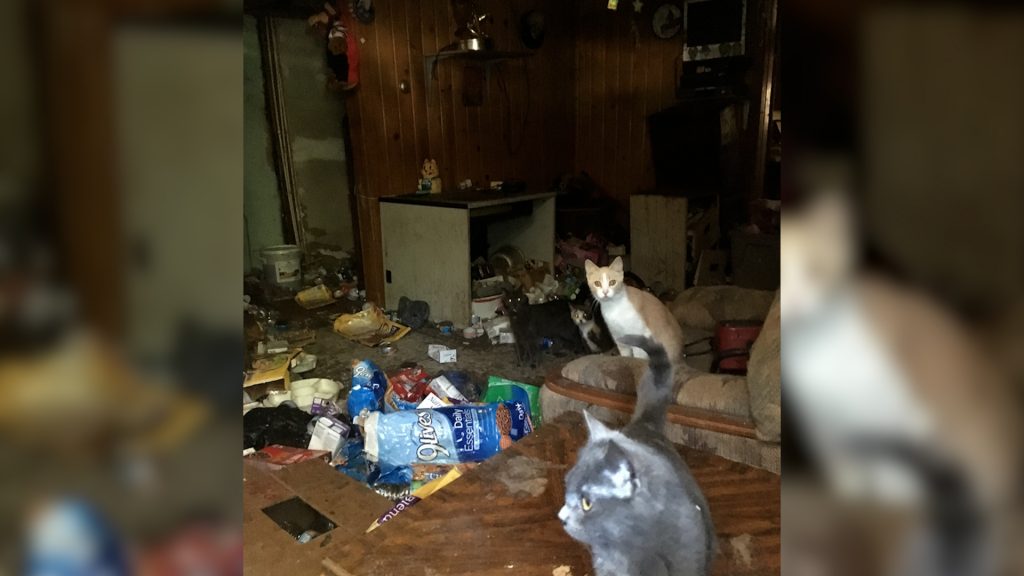The psychology behind large scale animal neglect

ALPENA, Mich. — Recently, Alpena Animal Control rescued 42 pets from a single residence in a large-scale animal neglect case. With May being Mental Health Awareness Month, we want to take a deeper look at the root of these situations.
There can be several reasons why a person may hoard animals. Most of the time, both the owners and the pets are suffering. One of the underlying causes, like the most recent case in Alpena, is hoarding as a coping mechanism for traumatic events in the past.
“There is some type of a stressor- some type of trauma that causes them to hoard animals,” said Animal Control Officer Michelle Hall. “That’s their brains coping mechanism.”
According to clinical psychologist Dr. Sabrina Romanoff, the act of rescuing animals can help those overcome with trauma- especially from their childhood.
“These people have had early childhood experiences that they wished to be saved from, whether it was neglect or mistreatment or exploitation,” said Dr. Romanoff, a Harvard-trained mental health professional. “So in a sense, their relationship with the animals corrects for that.”
Dr. Romanoff says the compulsion to over-collect animals is driven by this savior complex. There is also a sense of delusion or denial- that they are the only ones that can properly care for the animals they’ve rescued.
“They’ll have an intense love for them,” Dr. Romanoff said. “[They] believe that no one else could, or would, take care of them.”
Hoarding offers a short-term solution to these people- as they are able to correct some of their emotions from the past. That’s why, in most cases, it takes an outsider’s attention to recognize the problem. In the end, the neglect experienced can then be reflected onto the animals.
“The need to be the savior of the vulnerable gets in the way of accurately recognizing the capacity to meet the needs of these animals,” Dr. Romanoff said. “They become what they’re trying to protect against.”





